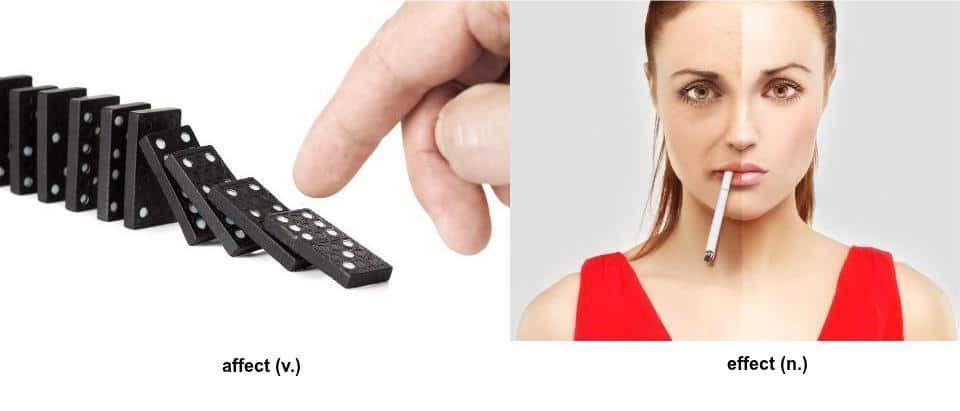Есть в английском некоторые хитрые слова и выражения, которые умудряются путать не только учащиеся, но и сами носители языка. Мы выбрали самые распространенные слова, которые часто путают друг с другом, и хотим помочь вам разобраться с ними.
Amount vs Number
Возможно, вам известно, что оба слова можно перевести как «количество», но в английском языке между ними существует кардинальное различие. Amount мы можем употреблять с uncountables, т. е. неисчисляемыми понятиями, например money, sugar, snow, etc. Number употребляется с countables, то есть с теми вещами, которые можно посчитать, например apples, ideas, people.
Cравните:
I spent a considerable amount of time preparing for the exam. – Я потратил большое количество времени, готовясь к экзамену.
I received a good number of phone calls from people who had seen my ad. – Я получил большое количество телефонных звонков от людей, которые видели мое объявление.
- Не забудьте освежить свои знания об исчисляемых и неисчисляемых существительных с помощью нашей статьи «Countable and Uncountable Nouns».
Fun vs Funny
На самом деле многие мои ученики делают ошибки такого плана: I was at the funny party yesterday. И что же было такого смешного на той вечеринке? Может, там было много клоунов? Ах нет, вы были не на смешной вечеринке, а на очень веселой. Это всё же разные вещи, и в таком случае вы можете сказать что-то вроде: I had so much fun at the party yesterday! Запоминаем:
- Funny – это прилагательное, означает «смешной», «такой, что заставляет вас смеяться», например, a joke (шутка) может быть funny.
- Fun – может быть прилагательным и переводиться как «веселый», «захватывающий»; синоним этого слова – exciting. Taкжe fun может употребляться как существительное – «занятие, которое вам нравится».
Существует множество выражений с fun, угадать значения которых несложно. To have fun – «веселиться», «развлекаться», join the fun – «присоединиться к веселому занятию», harmless fun – «безобидное развлечение».
Doing good vs doing well
How you doin? – знаменитая фраза Джоуи из сериала Friends («Друзья») грамматически не совсем верная. Как известно, это еще одна вариация How are you?, то есть вопрос о том, как у человека дела. Уверены ли вы в том, что ответите правильно на этот вопрос? На всякий случай советуем посмотреть видео.
Exactly. Superman does good, you are doing well. To do good означает «приносить пользу», «творить добро», тогда как to do well – «чувствовать себя хорошо», «нормально». Не перепутайте, иначе кто-то может и вам посоветовать подтянуть грамматику.
Adopt/Adapt/Adept
Несмотря на похожесть, это абсолютно разные слова. To adopt и to adapt – глаголы, аdept – прилагательное (или существительное). Дальше будет еще интереснее.
- To adapt [ə’dæpt] – to gradually change your behaviour and attitudes in order to be successful in a new situation or to change something to make it suitable for a different purpose. Именно это слово похоже на русский эквивалент и переводится как «адаптировать(ся)», «приспосабливать(ся)»:
When I was 10, we moved to another city and I found it quite difficult to adapt to a new school. – Когда мне было 10, мы переехали в другой город и мне было трудно привыкнуть к новой школе.
I decided to adapt this recipe a little as I know that you hate avocado. – Я решил немного изменить этот рецепт, потому что знаю, что ты ненавидишь авокадо.
- To adopt [ə’dɔpt] – to start dealing with something. Перевод – «принимать». Второе значение: to become a legal parent of someone else’s child. Перевод – «усыновлять», «удочерять».
A new law on higher education was adopted yesterday. – Новый закон о высшем образовании был принят вчера.
Mark has known that he is an adopted child since young age. – Марк с детства знал, что его усыновили.
- Adept [ə’dept] – good at something that needs care and skill. Перевод – «знающий», «опытный», «сведущий».
I am afraid most politicians are adept liars. – Боюсь, что большинство политиков – искусные лжецы.
That fish is adept at hiding on the seabed. – Та рыба умеет хорошо прятаться на дне моря.
Prospective vs Perspective
Эти слова также относятся к разным частям речи: prospective – прилагательное, perspective – существительное.
Prospective – possible or likely to happen. Перевод – «будущий», «ожидаемый», «предполагаемый».
As a prospective doctor he should do a lot of studying. – Как будущий врач, он должен много учиться.
Perspective – view on something or method of drawing. Следует переводить как «точка зрения», «мировоззрение» или «перспектива». Здесь следует отметить, что «перспективный» в значении «многообещающий» – это обычно promising or having good prospects.
Working abroad gives you a whole new perspective. – Работа за рубежом дает совершенно новый взгляд на жизнь.
He is a very promising young man. – Он многообещающий молодой человек.
Assure/Ensure/Insure
Эти три глагола похожи по произношению, но имеют разные значения. Давайте сначала потренируем слух и посмотрим, как разницу между тремя глаголами объясняет native speaker.
- To assure [ə’ʃuə] – to tell someone that something will definitely happen or is definitely true so that they are less worried. Это означает, что мы можем перевести assure как «уверять», «заверять кого-либо», «убеждать». Обратите внимание, мы можем употреблять assure that или assure somebody of something.
I assure you that you’ll succeed if you try hard enough. – Я уверяю тебя, у тебя все получится, если ты сильно постараешься.
The shop-assistant assured me of the quality of this product. – Продавец убедил меня в качестве продукта.
- To ensure [ɪn’ʃuə] – to make certain that something will happen properly (also make sure). Подходящий перевод – «обеспечивать», «гарантировать».
Wearing a helmet while cycling ensures your safety. – Шлем при катании на велосипеде обеспечивает вашу безопасность.
It was your responsibility to ensure that everyone at the ceremony has a seat. – Это ты должен был убедиться, чтобы на церемонии у всех было место.
- To insure [ɪn’ʃuə] – to buy insurance so that you will receive money if something bad happens to you, your family, your possessions etc. Следует переводить как «страховать», «застраховывать». С помощью суффикса можно образовать существительное insurance (страховка).
This wouldn’t have happened if you had insured your car. – Этого бы не произошло, если бы ты застраховал машину.
They insured their house for 100000$ – Они застраховали свой дом на сумму в 100000$
Ultimate vs Penultimate
Ultimate – something that happens at the end or something that is of greatest importance. Перевод – «последний», «предельный», «основной», «главный».
They claimed that their ultimate goal was peace in the whole world. – Они утверждали, что их основной целью был мир во всем мире.
Penultimate – not the last but immediately before the last, the last but one. Перевод – «предпоследний».
I’ve almost finished this book. I am reading the penultimate chapter. – Я почти закончила читать эту книгу. Я на предпоследней главе сейчас.
On time vs In time
В данном случае совсем не безразлично, какой предлог употребить. Также нужно быть внимательным, поскольку в русском языке оба слова можно перевести как «вовремя», тем не менее нужно учитывать некоторые нюансы.
On time – at the correct time or the time that was arranged. Перевод – «вовремя», «в точно назначенное время».
Professor Smith is a great teacher but his lectures never start on time. – Профессор Смит – замечательный учитель, но его лекции никогда не начинаются вовремя.
In time – with enough time to spare; before the last moment. Перевод – «вовремя» в значении «заблаговременно» или «своевременно, даже немного заранее».
Some of my friends are visiting tonight so I need to come in time to cook dinner. – Некоторые мои друзья приедут навестить меня, так что мне надо приехать пораньше, чтобы приготовить ужин.
Heroin vs Heroine
Heroin – a powerful illegal drug, то есть «героин».
Requiem for a dream is a film about heroin addicts. – «Реквием по мечте» – это фильм о наркоманах.
Heroine – a woman who is admired for doing something extremely brave, то есть «героиня». Также героиня книги, фильма и т. д.
I always admired Jane Austen’s heroines. – Я всегда восхищался героинями книг Джейн Остин.
Careless vs carefree
Слова внешне очень похожи, но они имеют разное значение.
Careless – not paying enough attention to what you are doing, so that you make mistakes, damage things / opposite to careful. Перевод – «небрежный», «невнимательный».
Tim is so careless with his keys! He is always losing them! – Тим такой невнимательный со своими ключами! Он их постоянно теряет.
Carefree – having no worries or problems. Перевод – «беззаботный», «ничем не обремененный». Не всегда имеет положительную характеристику, иногда словом carefree могут назвать человека, который вообще не берет на себя никакие обязанности и заботы.
What I really like about holidays is being carefree. – Что мне действительно нравится в отпуске, так это отсутствие забот.
Lie vs lay
Глагол lie имеет два значения:
- To lie (lie – lay – lain present participle lying, third person singular lies) – to be in a position in which your body is flat on the floor, on a bed etc, т. е. «лежать».
He was lying on the sofa dreaming about his holiday. – Он лежал на диване, мечтая о своем отпуске.
- To lie (lie – lied – lied, present participle lying, third person singular lies) – to deliberately tell someone something that is not true, т. е. «лгать».
Don’t lie to me! I know when you are lying! – Не ври мне! Я знаю, когда ты врешь!
Кроме того, есть еще слово lay.
To lay (lay – laid – laid present participle laying third person singular lays) – to put someone or something down carefully into a flat position (положить) или to put the cloth, plates, knives, forks etc on a table, ready for a meal (накрывать на стол).
Nancy was cooking dinner, while Sam was laying the table. – Нэнси готовила ужин, пока Сэм накрывал на стол.
He laid his hand on my shoulder and told me not to worry. – Он положил свою руку мне на плечо и сказал мне не беспокоиться.
Вот и закончился наш небольшой хит-парад «проблемных» слов в английском языке. Чтобы быть уверенным, что вы все запомнили, предлагаем выполнить тест.
Тест
Top 10 most confusing pairs of words
Если вы нашли ошибку, пожалуйста, выделите фрагмент текста и нажмите Ctrl+Enter.
Путаете ли вы похожие английские слова? Не пугайтесь — с этой проблемой сталкиваются многие, но она решаема. На современных примерах из фильмов и сериалов покажем, как различать такие слова.
Мы уже рассказывали вам о похожих словах, которые часто путают в английском языке. Но их так много, что все в одну статью никак не поместились бы. Сегодня представим вам 20 новых пар так называемых commonly confused words. Узнайте, как не перепутать босса с поваром, персонал с материалом, цену с призом, кухню с двоюродным братом и политику со стратегией.
Если вы хотите расширить свой лексический запас, записывайтесь на бесплатный вводный урок.
1. Chief or chef?
| Характеристика | Слово | |
|---|---|---|
| chief /tʃiːf/ |
chef /ʃef/ |
|
| Перевод | существительное — лидер, руководитель
прилагательное — главный, самый важный; руководящий |
существительное — повар, шеф-повар |
| Синонимы | существительное — a boss, an employer, a head
прилагательное — main, supreme |
существительное — a cook |
| Пример употребления | I’d like to appoint Jeff chief loan officer. — Хочу назначить Джеффа ведущим кредитным специалистом.
The chief of the staff is responsible for taking serious decisions. — Руководитель персонала ответственен за принятие серьезных решений. |
Remi has always dreamt of becoming a chef at a Michelin-starred restaurant. — Реми всегда мечтал стать поваром ресторана, отмеченного звездами «Мишлен». |
2. Suit or suite?
| Характеристика | Слово | |
|---|---|---|
| suit BrE — /sjuːt/, AmE — /suːt/ |
suite /swiːt/ |
|
| Перевод | существительное — костюм, комплект одежды
глагол — подходить, устраивать, удовлетворять требованиям |
существительное — номер люкс; набор, комплект |
| Синонимы | существительное — a tuxedo
глагол — to satisfy, to match up, to measure up |
существительное — a deluxe room; a set |
| Пример употребления | Try on this suit, I guess it should fit you perfectly. — Примерь этот костюм, я думаю, он будет сидеть на тебе идеально.
The variety of beverages and appetizers at the party suited all tastes. — Разнообразие напитков и закусок на вечеринке удовлетворяло всем вкусам. |
I need a suite in your hotel. — Мне нужен номер люкс в вашем отеле.
We ordered a new four-piece suite for the kitchen. — Мы заказали новый комплект мебели из четырех предметов для кухни. |
3. Cousin or cuisine?
| Характеристика | Слово | |
|---|---|---|
| cousin /ˈkʌzn/ |
cuisine /kwɪˈziːn/ |
|
| Перевод | кузен, кузина; дальний родственник; единомышленник | кухня, кулинарное искусство |
| Синонимы | a distant relative; like-minded person | cookery, national food |
| Пример употребления | Honey, my cousin is going to stay with us for a couple of weeks. — Дорогая, мой двоюродный брат поживет у нас пару недель.
I’ve got plenty of cousins who support me. — У меня много единомышленников, которые поддерживают меня. |
Take me to some cafe where locals eat. I want to try their national cuisine. — Отведи меня в кафе, в котором едят местные. Хочу попробовать их национальную кухню. |
First cousin означает «двоюродный брат/сестра», а second cousin — «троюродный брат/сестра».
4. Deny or refuse?
| Характеристика | Слово | |
|---|---|---|
| deny /dɪˈnaɪ/ |
refuse /rɪˈfjuːz/ |
|
| Перевод | отрицать; мешать, препятствовать | отвергать, отклонять, отказывать |
| Синонимы | to disclaim; to prevent | to decline, to reject |
| Пример употребления | после глагола to deny употребляем существительное, местоимение that либо глагол с окончанием -ing:
The thief denied the theft of the car. — Вор отрицал, что он украл машину. |
The judge refused to sustain a claim. — Судья отказался удовлетворить иск. |
5. Ashamed or embarrassed?
| Характеристика | Слово | |
|---|---|---|
| ashamed /əˈʃeɪmd/ |
embarrassed /ɪmˈbærəst/ |
|
| Перевод | испытывающий чувство стыда | смущенный, сбитый с толку |
| Синонимы | sheepish, contrite, shameful | confused, abashed |
| Пример употребления | после прилагательного ashamed употребляем либо предлог of, либо местоимение that:
The accountant was ashamed of his awkward dancing at the corporate party. — Бухгалтер испытывал стыд после своих неловких танцев на корпоративной вечеринке. |
после прилагательного embarrassed употребляем предлог by или about:
I was embarrassed by her behavior. — Меня смутило ее поведение. I was too embarrassed about her words that I couldn’t do anything. — Я была настолько сбита с толку ее словами, что не смогла ничего сделать. |
6. Accept or agree?
| Характеристика | Слово | |
|---|---|---|
| accept /əkˈsept/ |
agree /əˈɡriː/ |
|
| Перевод | принимать (подарок, предложение, правду, идею), допускать | соглашаться, сходиться во взглядах; договариваться; соответствовать |
| Синонимы | to receive, to answer affirmatively, to admit | to consent |
| Пример употребления | Have you already accepted the invitation to their wedding? — Вы уже приняли приглашение на их свадьбу?
Her husband has passed away, but she still can’t accept the fact that he’s gone. — Ее муж умер, но она никак не может принять факт того, что его больше нет. |
после глагола to agree употребляем предлоги with, on/about, частицу to с глаголом или местоимение that:
We agreed to put off the meeting till Monday. — Мы условились отложить собрание до понедельника. We agree on many social and political issues. — Мы сходимся во взглядах по многим социальным и политическим вопросам. |
7. Tall or high?
| Характеристика | Слово | |
|---|---|---|
| tall /tɔːl/ |
high /haɪ/ |
|
| Перевод | определенного роста (о людях), высотный (о многоэтажных зданиях) | высокий (об объектах); высокопоставленный; отличный, превосходный |
| Синонимы | elevated, huge, vast | large, big |
| Пример употребления | How tall is your boy? — Насколько ваш мальчик высокий?
Tall skyscrapers almost reach the clouds. — Высотные небоскребы почти достают до облаков. |
It’s dangerous to swim today. The waves are extremely high. — Сегодня опасно плавать. Волны очень высокие.
Their goods are known for the high quality. — Их товары известны своим отличным качеством. |
8. Opportunity or possibility?
| Характеристика | Слово | |
|---|---|---|
| opportunity BrE — /ˌɒpəˈtjuːnəti/, AmE — /ˌɑːpərˈtuːnəti/ |
possibility BrE — /ˌpɒsəˈbɪləti/, AmE — /ˌpɑːsəˈbɪləti/ |
|
| Перевод | шанс, благоприятная возможность, удобный случай | вероятность, возможность |
| Синонимы | a chance | probability, likelihood |
| Пример употребления | после существительного an opportunity употребляем предлог for или конструкцию to do smth:
This private school is a great opportunity for your kids. — Эта частная школа — отличный шанс для ваших детей. I appreciate the opportunity to make a toast and thank you all. — Я ценю возможность произнести тост и поблагодарить вас всех. |
после существительного a possibility употребляем предлог of или местоимение that:
There is a possibility that the weather will be bad at the weekend. — Есть вероятность, что погода на выходных испортится. Is there a possibility of any injuries during the rock-climbing classes? — А какова вероятность получить травму во время занятий скалолазанием? |
9. Thankful or grateful?
| Характеристика | Слово | |
|---|---|---|
| thankful /ˈθæŋkfl/ |
grateful /ˈɡreɪtfl/ |
|
| Перевод | радостный оттого, что избежал опасности, радостный оттого, что что-то неприятное позади | благодарный за что-то хорошее |
| Синонимы | pleased | appreciative |
| Пример употребления | после прилагательного thankful употребляем предлог for, местоимение that или конструкцию to do smth:
Alice was thankful that she didn’t get in jail. — Элис была рада тому, что она не попала в тюрьму. I’m thankful to stay in one piece after the car crash. — Я рад, что остался жив после автомобильной аварии. |
после прилагательного grateful употребляем конструкцию to smb for smth (кому-то за что-либо) или местоимение that:
I’m grateful to my parents for my happy childhood. — Я благодарен своим родителям за счастливое детство. Nick was grateful that he had a shelter. — Ник был благодарен за то, что у него был приют. |
10. Foreigner or stranger?
| Характеристика | Слово | |
|---|---|---|
| foreigner BrE — /ˈfɒrənə(r)/, AmE — /ˈfɔːrənər/, /ˈfɑːrənər/ |
stranger BrE — /ˈstreɪndʒə(r)/, AmE — /ˈstreɪndʒər/ |
|
| Перевод | иностранец | незнакомец, посторонний; чужой в какой-то обстановке |
| Синонимы | someone is from abroad/overseas | an unknown person |
| Пример употребления | It’s not that easy for a foreigner to get a proper job. — Иностранцу не так легко получить должную работу. | I feel like a complete stranger in New York. — Я чувствую себя чужим в Нью-Йорке. |
11. Alternately or alternatively?
| Характеристика | Слово | |
|---|---|---|
| alternate(ly) BrE — /ɔːlˈtɜːnət/, AmE — /ˈɔːltərnət/ |
alternative(ly) BrE — /ɔːlˈtɜːnətɪv/, AmE — /ɔːlˈtɜːrnətɪv/ |
|
| Перевод | поочередный, чередующийся | альтернативный, другой вариант |
| Синонимы | in turns, consecutively | another option, instead, on the other hand |
| Пример употребления | Seasons change alternately in this region. — В этом регионе времена года меняются поочередно. | We were walking home on foot. Alternatively, we could take a taxi, but we didn’t have money. — Мы шли домой пешком. Как вариант, мы могли взять такси, но у нас не было денег. |
12. Staff or stuff?
| Характеристика | Слово | |
|---|---|---|
| staff BrE — /stɑːf/, AmE — /stæf/ |
stuff /stʌf/ |
|
| Перевод | существительное — служебный персонал
глагол — набирать персонал прилагательное — штатный |
существительное — штука, штуковина; материал, вещество; что-то неопределенное (идея, дело)
глагол — набивать, начинять |
| Синонимы | существительное — employees, personnel
глагол — to hire прилагательное — in-house |
существительное — a thing, an object, an item; a substance, material
глагол — to fill |
| Пример употребления | слово staff может употребляться как с глаголом во множественном числе, так и в единственном — подробнее об этом читайте в статье «Употребление существительных только во множественном и только в единственном числе»:
The staff are supposed to be hardworking. — Сотрудники должны быть трудолюбивыми. The staff has shown its readiness to work hard. — Персонал показал готовность работать усердно. |
I can’t meet you at the airport. I’ve got some stuff to do. — Я не могу встретить тебя в аэропорту. Мне надо сделать кое-какие дела.
Jim quickly stuffed his clothes into the suitcase and hurried to catch the train. — Джим быстро запихал вещи в чемодан и поторопился на поезд. |
13. Ache or pain?
| Характеристика | Слово | |
|---|---|---|
| ache /eɪk/ |
pain /peɪn/ |
|
| Перевод | существительное — боль (продолжительная, ноющая, доставляющая дискомфорт)
глагол — испытывать боль |
существительное — острая боль при травме или болезни; горе, страдание
глагол — причинять боль, болеть; мучить, огорчать |
| Пример употребления | Runner’s calves ached after the marathon. — Икры бегуна болели после марафона.
The kid felt a dull ache in the stomach after eating some cookies. — Ребенок почувствовал тупую боль в животе после того, как съел немного печенья. |
Let’s help this poor guy. He seems to be in pain. — Давай поможем этому бедолаге. Похоже, ему больно.
Mike felt sharp pain in his chest and we called an ambulance. — Майк почувствовал острую боль в груди, и мы вызвали скорую. |
14. Loudly or aloud?
| Характеристика | Слово | |
|---|---|---|
| loudly /ˈlaʊdli/ |
aloud /əˈlaʊd/ |
|
| Перевод | громко (о любом громком звуке) | вслух, во весь голос |
| Синонимы | in a loud voice | out loud |
| Пример употребления | The books fell loudly on the table. — Книги громко упали на стол. | Mary, please read your verse aloud for the whole class. — Мэри, пожалуйста, прочитай свое стихотворение вслух для всего класса. |
15. Price or prize?
| Характеристика | Слово | |
|---|---|---|
| price /praɪs/ |
prize /praɪz/ |
|
| Перевод | существительное — цена; жертва
глагол — устанавливать цену |
существительное — премия, награда; приз, выигрыш
глагол — высоко ценить, оценивать по достоинству |
| Синонимы | существительное — cost, charge, a fee; a sacrifice | существительное — an award, a trophy
глагол — to appreciate, to value |
| Пример употребления | Our wedding dresses range in price from 150 $ to 500 $. — Наши свадебные платья стоят от 150 до 500 долларов.
If you want to become rich, you have to pay a certain price. — Если ты хочешь быть богатым, придется чем-то пожертвовать. |
The main prize in the competition is a month for two in Italy. — Главный приз в соревнованиях — это поездка на двоих в Италию на месяц. |
16. Arise or rise?
| Характеристика | Слово | |
|---|---|---|
| arise /əˈraɪz/ |
rise /raɪz/ |
|
| Перевод | глагол — появляться, возникать; происходить, проистекать | глагол — восходить, подниматься; увеличиваться в объеме, расти
существительное — восход, рост, подъем; прибавка к зарплате |
| Синонимы | глагол — to start, to begin, to arrive | глагол — to go upwards, to lift, to increase |
| Пример употребления | If a crisis arises, we should come up with plan B. — Если возникнет кризис, мы должны придумать план Б.
People think that all their problems arise from the decisions of the government. — Люди считают, что все их проблемы проистекают из решений правительства. |
Accommodation prices will continue to rise during this year. — Цены на жилье продолжат расти в этом году.
Am I going to get a rise for the overtime work? — Я получу прибавку за переработки? |
17. City or town?
| Характеристика | Слово | |
|---|---|---|
| city /ˈsɪti/ |
town /taʊn/ |
|
| Перевод | BrE — большой значимый город, город с местным самоуправлением; жители города (с глаголом в единственном числе)
AmE — город любого размера, у которого определены границы и который наделен официальными полномочиями от правительства штата |
BrE — небольшой город; административный центр района, деловой центр; жители городка (с глаголом в единственном числе)
AmE — деревня |
| Пример употребления | Major Russian cities are Saint Petersburg and Moscow. — Главные русские города — Санкт-Петербург и Москва.
The city is waiting for a new election race. — Жители города ждут новой предвыборной гонки. |
My native town is very small. Its population is only 2 000 people. — Мой родной городок очень маленький. Его население всего лишь 2 000 человек.
Today I’m going to town for a brief business meeting. — Сегодня я еду в центр на короткую деловую встречу. |
18. Close or shut?
| Характеристика | Слово | |
|---|---|---|
| close BrE — /kləʊz/, AmE — /kloʊz/ |
shut /ʃʌt/ |
|
| Перевод | закрыть | захлопнуть, запереть на ключ |
| Синонимы | to end, to stop, to finish | to lock |
| Пример употребления | Close the door please when leaving. — Когда будете уходить, закройте, пожалуйста, дверь.
Calm down. Close your eyes and count to ten. — Расслабьтесь. Закройте глаза и посчитайте до десяти. |
Shut the door from the outside right now! — Сейчас же захлопни дверь с той стороны!
Switch off the light and shut the warehouse. — Выключи свет и запри склад. |
19. Politics or policy?
| Характеристика | Слово | |
|---|---|---|
| politics BrE — /ˈpɒlətɪks/, AmE — /ˈpɑːlətɪks/ |
policy BrE — /ˈpɒləsi/, AmE — /ˈpɑːləsi/ |
|
| Перевод | политика, политическая деятельность; политические убеждения и взгляды | линия поведения, стратегия; принципы, стандарты, нормы |
| Пример употребления | Many people say that they are not interested in politics, they want to discuss something entertaining. — Многие люди говорят, что их не интересует политика, и они хотят обсуждать что-то развлекательное. | I develop foreign policy of our company. — Я развиваю международную стратегию нашей компании. |
20. Hear or listen?
| Характеристика | Слово | |
|---|---|---|
| hear BrE — /hɪə(r)/, AmE — /hɪr/ |
listen /ˈlɪsn/ |
|
| Перевод | слышать, обладать слухом | слушать, внимательно и осознанно воспринимать информацию; Послушай! |
| Синонимы | to notice sound | to receive sonic information attentively, to pay attention to sounds |
| Пример употребления | I can hear them talking behind the door. — Я слышу, как они говорят за дверью.
I heard the rumours about closing our company for good. — Я слышала слухи о том, что нашу компанию хотят закрыть навсегда. |
Listen to him carefully and answer every question sincerely. — Слушай его внимательно и отвечай искренне на каждый вопрос.
While commuting, I listen to the music or audiobooks. — Добираясь до работы на транспорте, я слушаю музыку или аудиокниги. Listen! I want to talk to you. — Послушай! Я хочу поговорить с тобой. |
Знаете ли вы еще какие-то похожие английские слова? Пишите в комментариях.
© 2023 englex.ru, копирование материалов возможно только при указании прямой активной ссылки на первоисточник.

By
Last updated:
August 16, 2022
We all know English is a crazy language.
Lots of different words share the same spellings and pronunciations.
Some of these words are confusing even for native speakers, especially in writing.
To help you out, we’ve created this list. On it, you’ll find some pairs of similar sounding English words that confuse people all the time.
Contents
- 9 English Word Pairs That Can Puzzle Even Native Speakers
-
- 1. Lose and Loose
- 2. Resign and Re-sign
- 3. Advice and Advise
- 4. Affect and Effect
- 5. Compliment and Complement
- 6. Disinterested and Uninterested
- 7. Bear and Bare
- 8. Further and Farther
- 9. Hanged and Hung
- Know the differences and don’t get confused
Download:
This blog post is available as a convenient and portable PDF that you
can take anywhere.
Click here to get a copy. (Download)
9 English Word Pairs That Can Puzzle Even Native Speakers
1. Lose and Loose
We spell them differently and we pronounce them differently, but English speakers still use these words incorrectly. Luckily, they’re easy to distinguish.
Lose – pronounced with a “z” sound – is a verb meaning to not have something anymore, to be unable to find something or to not win. You lose your cell phone, or you lose your way while driving somewhere.
- I don’t want my football team to lose the game.
- She will lose her money if she gambles with it.
Loose – with an “s” sound – on the other hand, is an adjective that means free, unattached or not tight. It’s also a verb meaning to untie or let go of something.
- The door handle fell off because it was too loose.
- A loose sweater feels very comfortable.
Another common mistake people make is with the word loser, meaning a stupid, uncool or unfortunate person. You can say “You’re a loser.” But don’t call someone “a looser.” If you do that, then you’ll be the loser!
2. Resign and Re-sign
This one is a little tougher. These two words have identical spellings – except for the hyphen – and opposite meanings.
Resign — without the hyphen — means to quit your job and the “s” is pronounced like a “z.”
- My boss didn’t want to increase my salary so I decided to resign. This will be my last week of work.
Re-sign — with the hyphen — means to sign a contract again and it usually also means that you’ve decided to stay in your current job! In re-sign, the “s” is pronounced as an “s,” and you emphasize the first syllable.
- I love my current job, so I happily re-signed for another year.
3. Advice and Advise
With these words we have similar spellings, similar meanings and only a slight difference in pronunciation.
Advice — with an “s” sound — is a noun. You can give your friend some advice.
- My father gave me one piece of advice – “Always be on time.”
Advise — with a “z” sound — is a verb. With this word, you can advise your friend. The meaning of the two words is basically the same.
- She advised me to invest my money more carefully.
4. Affect and Effect
Again, with these two words the main difference is grammatical, although they’re pronounced slightly differently. Usually, affect is a verb and effect is a noun, and they’re used when talking about the results or consequences of particular actions.
- I’m worried that your lazy habits will affect your studies (your lazy habits will have a bad effect on your studies).
- Before you start an argument with your boss, consider the effects of your actions (before you start an argument, consider how your actions will affect the situation).
5. Compliment and Complement
Compliment — If someone says to you “I really like your shirt” then they’re complimenting you. In other words, they’re giving you a compliment. As a verb and noun, compliment means saying something nice about someone.
- I complimented my sister on her delicious cooking (verb).
- I gave my sister a compliment on her delicious cooking (noun).
Complement — is when two things go well together, or complete each other. This word is often used in food and in fashion to describe matching styles or ingredients.
- My blue tie really complements my white shirt (my blue tie and white shirt go well together).
- That wine complements the meat dish well.
6. Disinterested and Uninterested
Many native speakers use these two words with the same meaning – bored, or not interested. That’s certainly the meaning of uninterested, but it’s not the meaning of disinterested. The real meaning of disinterested is impartial, objective or not taking a side in an argument. A judge hearing a court case should be disinterested, but definitely not uninterested!
- The children wanted to play outside and were very uninterested in doing any studying.
- Sometimes a stranger can make a disinterested and fair decision more easily than a family member.
These days, many people believe that disinterested can also mean uninterested. But it’s still helpful to know the difference.
7. Bear and Bare
Bear — as a verb — has several meanings, including to hold up or support a heavy weight and to suffer or endure difficulties. We’re not talking about big hairy bears that live in forests.
- Don’t stand on that old chair, it cannot bear your weight.
- I cannot bear to see my son in pain.
Bare, meanwhile, is an adjective that means naked or uncovered, or a verb which means to uncover or reveal.
- Visitors to the temple must not have bare arms or legs, so wear long pants and a jacket (adjective).
- I bared my arm to show them my new tattoo (verb).
8. Further and Farther
These two are very confusing. Further and farther both have the same meaning but are used in different situations. They’re pronounced in a similar way too, but with a difference – fur and far.
Farther — with far — is used when we’re talking about physical distance.
- As a passenger in a car, you can ask the driver “How much farther until we reach our destination?”
- In a race, you can say “She ran farther and faster than him.”
Further — with fur — is used for more abstract situations.
- The human resources representative told me: “If you have any further complaints, please tell me.”
- The professor told us: “If you have any further questions you can ask me at the end.”
In those examples, complaints and questions are not physical things, so you cannot use the word farther. Take one more look at the difference between this two words in context:
If we drive any farther tonight we’ll be too tired to continue driving tomorrow.
We should discuss this topic further before we make a decision.
9. Hanged and Hung
The difference between hanged and hung can be deadly.
Hung is the past of the verb to hang, most of the time.
- I hung the painting on the wall and I hung my clothes on the clothes line.
Hanged is the deadly exception, as it’s the past tense of hang in one very particular situation. Hang can also mean to execute a criminal by hanging them with a rope. In that case, the past tense of hang is hanged.
- The judge sentenced the murderer to be hanged.
- The criminal was hanged in the prison.
Know the differences and don’t get confused
English words like these can be very confusing, can’t they?
Fortunately, knowing the differences makes it easier to avoid making mistakes. Especially when you’re speaking English, most people won’t notice if you mix up these similar sounding words. In fact, native speakers do it all time. But when you’re writing, you should look out for these words and be careful that you’re using the correct one.
Remember to double check your spelling and think about the situation you’re in. Did you say something nice to someone? That was a compliment, not complement. Are you resigning from your job, or are you re-signing? Being aware of the differences in context can help you avoid any mistakes. Context (along with practice) is key!
Certain language learning programs can help with context-based practice. One example is FluentU, which uses authentic English videos equipped with interactive subtitles so you can see which word is being used at the appropriate time. You can click on a word to see its definition and example usages in sentences and other clips, then review spelling and speaking vocabulary with quizzes.
Constant exposure really is the best way to master these words. Once you’re confident with them, feel free to show off your knowledge to the native speakers who still fall for these words’ tricks!
Download:
This blog post is available as a convenient and portable PDF that you
can take anywhere.
Click here to get a copy. (Download)
Some words look the same, while others sound the same. Knowing the difference between these similar words can be very tricky. In this handout we have provided some of the most commonly confused word pairs, with definitions for each and sentences showing them in context. This is by no means a comprehensive list, but it should hopefully help you begin to recognize the particular differences between different words.
Here are what we consider to be the top ten most confusing word pairs, organized in alphabetical order:
Affect vs. Effect
Affect is a verb meaning to influence. Effect is a noun meaning result.
While the student didn’t see how studying affected his test-taking, the positive effects soon became clear.
Lie vs. Lay
Lie is a verb meaning to recline or rest on a surface. Lay is a verb meaning to put or place.
Kim lies down to take a nap every day at 3:30 p.m. Before falling asleep, Kim lays her bracelet on the table.
Lose vs. Loose
Lose is a verb meaning to misplace. Loose is an adjective meaning slack, moveable, or weak.
I always manage to lose my loose-fitting tank top.
One Word vs. Two Word combos
People often confuse similar words that appear as one word, or two words. They are used in separate contexts, however, and so learning when to use each will improve your writing’s quality. Examples of one word/two word pairs include altogether vs. all together; anyway vs. any way; and everyday vs. every day.
Here’s an example of the difference between them:
Anyway vs. Any way
Anyway is an adverb meaning regardless. Any way is a phrase meaning any manner or method.
I don’t want to go to the party, anyway. We could take any way we want to get to the party.
Than vs. Then
Than is a conjunction used to compare two things. Then is usually an adverb indicating time.
Do you think that Pepsi Cola is better than Coca Cola? We went to the store, and then to a movie.
That vs. Which
That is used when the phrase or clause that follows it is necessary in the sentence. Which is used when the phrase or clause that follows it is not necessary.
Students that fail to thoroughly proofread often miss unnecessary points. Procrastinated papers, which students write often, fail to lead to the desired grades for their classes.
Their vs. There vs. They’re
Their is a pronoun that is plural possessive. There is a word that means place. They’re is a contraction that means they are.
Their dog is over there digging through the trash. They’re not the most responsible pet owners.
To vs. Too vs. Two
To is a preposition indicating direction. Too is an adverb meaning in addition or also. Two is a number.
Too many times, students go to their adviser to set up their classes, but only have two of their five classes picked out.
Who vs. Whom
Who is a pronoun used as the subject of a sentence. Whom is a pronoun used as a direct object.
Who is responsible for the research on this group project? We assigned research to whom for this group project?
NOTE: As a general rule, if you can substitute “she” then “who” is the appropriate choice. If you can substitute “her” then “whom” is the appropriate choice.
Your vs. You’re
Your is a pronoun that is second person possessive. You’re is a contraction that means you are.
Your clothes will wrinkle if you’re not careful with the drying cycle you choose.
Other Confusing Word Pairs
Accept vs. Except
Allusion vs. Illusion
Appraise vs. Apprise
Capital vs. Capitol
Climactic vs. Climatic
Complement vs. Compliment
Compose vs. Comprise
Elicit vs. Illicit
Emigrate vs. Immigrate
Ensure vs. Insure
Farther vs. Further
Imitated vs. Intimated
Its vs. It’s
Passed vs. Past
Set vs. Sit
There are many other resources out there to find help with other commonly confusing word pairs. Check out what the internet has to offer to improve your grammar/mechanics and writing skills!










